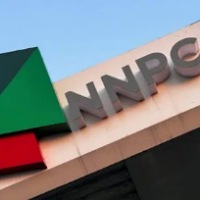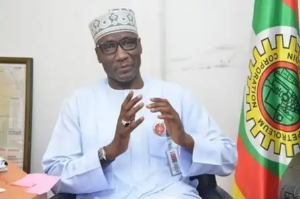Gas
Nigeria needs $30billion for gas production by 2015 – Sen. Nwaogu

ABUJA – The Chairman, Senate Committee on Gas Resources, Sen. Nkechi Nwaogu says 30 billion dollars is required for the development of infrastructure to achieve daily gas production target by 2015.
Nwaogu said this in Abuja on Monday, at the opening of a National Conference on Gas Resources organised by the Senate Committee on Gas Resources.
The 3-day conference has the theme: “Deepening Domestic Utilization of Natural Gas and Routine Flare Elimination.”
She noted that the low utilisation of natural gas in Nigeria was due to the insufficient production and distribution infrastructure, which resulted into flaring of about 1.4 billion cubic feet of gas daily.
She said the legislature and the executive arms of government were working tigether to eliminate all obstacles in order to attract massive investments into natural gas sector.
“The legislature and the executives have been collaborating to ensure total eradication of the regulatory, operational and commercial problems in order to attract greater investment into the sector.
“In achieving this bold aspirations, this committee is of the view that Nigeria will require huge investments from local and international communities in human-capital, finance and technological innovation.
“A significant investment of over 30 billion dollars in infrastructure is needed to achieve Nigeria’s target of producing 3.4 billion cubic feet of gas daily by 2015, “she said.
Nwaogu said that objective of the conference was to create appropriate forum for the various stakeholders to find ways to increase domestic use of natural gas and to eradicate gas flaring.
She added that the conference was also aimed at identifying the challenges militating against the widespread consumption of gas in Nigeria.
In an address, the Senate President, Sen. David Mark urged all stakeholders in the oil and gas sector to ensure that Nigeria’s gas resources are used for sustainable development of the people.
Mark was represented by the Senate Minority Whip, Sen. Abu Ibrahim.
Mark said that stakeholders in the exploration of the nation’s abundant gas resources should focus on creating opportunities that would improve the lives of the people and the various communities.
He noted that the effective exploration of the gas resources would not only engender the massive creation of new job but would also serve as a launch pad for the revival of nation’s industrial sector.
He, however, cautioned that the prospects in the sector should extend beyond the exploration of hydrocarbons and the accumulation of wealth for only a select few.
“I need to stress that the gas revolution is not just about hydrocarbons and wealth.
“It is also about human beings and the betterment of the lives of people, their communities and the entire society.
“We have to explore the varying opportunities of this revolution and chart a sustainable way forward for the development of our people.”
Mark also tasked the stakeholders on the need to create effective mechanisms to prevent exploration activities that undermine the social and environmental conditions of the immediate communities.
He called for exploration of other alternative sources of of energy such as wind, solar, and bio- fuel.
Also speaking, the Minister of Petroleum Resources, Mrs Diezani Alison-Madueke, said Nigeria was at a turning point in the history of gas exploration which would yield commendable results soon.
Diezani, who was represented by the Group Managing Director of the NNPC, Mr Andrew Yakubu, said the Ministry had embarked on several strategies to encourage gas production, supply and consumption.
She said the Ministry had continued to spearhead various interventions to stimulate development of infrastructure to ensure gas utilisation for economic growth.
She urged stakeholders to accelerate the infrastructure delivery to explore alternative means of boosting private sector investment in infrastructural delivery and supply development.
Diezani said: “Our strategy for gas is to leverage the full potential of gas to achieve massive impact on the economy and the Gross Domestic Product (GDP)
“A robust infrastructure is the minimum requirement for supply and market growth.
“We are also reviewing the gas transmission pricing to ensure that it is also commercially adequate to support private investment in infrastructure.”
The Minister also called for acceleration to full market liberalisation to address the urgent challenge of increasing supply to the power sector.
– NAN
Gas
Platform Petroleum targets a billion-dollar investment

Announces ambitious expansion plans
Platform Petroleum says the company is targeting a billion-dollar investment as it announces an ambitious strategic plan to bring 3 marginal fields into production by 2025, with a target of 10,000 barrels of oil and at least 50 billion standard cubic feet of gas per day.
Speaking on the sidelines of the 2024 Offshore Technology Conference (OTC) in Houston, USA, Chief Dumo Lulu-Briggs, Chairman of Platform Petroleum said that the company has scheduled a roadshow in London this June 2024 to raise extra funding to finance their ambitious expansion plans.
“The upcoming roadshow aims to attract equity partners and prepare for future opportunities, targeting a billion-dollar investment. We are seeking partners ready to invest in Nigeria’s oil and gas potential.
Our goal is to showcase the country’s vast opportunities and its potential to international investors” Lulu-Briggs said.
Platform Petroleum’s roadshow in London will highlight the company’s efficient production, upgraded flow stations, increased capacity, and achievements in nearly zero emissions.
With about one percent gas flare currently, Platform aims for zero gas flares by the last quarter.
“Nigeria is a vast market, and Platform Petroleum is thinking big. With the government’s ambitious plans, such as the Lagos-Calabar coastal line, Platform is poised for growth; pushing itself to the next level, building on a strong foundation and following Seplat’s successful precedent”, Lulu-Briggs said.
Despite being a small company, he emphasized that Platform Petroleum has demonstrated significant success and efficiency, showcasing that smaller oil and gas entities can indeed achieve remarkable feats adding that he believes that the company deserves recognition and more assets.
“Platform Petroleum is ambitious, aspiring to become a tier-1 company akin to international oil companies (IOCs) or a tier-2 company like Seplat. Interestingly, Seplat originated from Maurel & Prom, Shebah Petroleum, and Platform Petroleum, and today stands as a major player in the industry.
This history underlines Platform’s potential for substantial growth”, Lulu-Briggs said.
Furthermore, the Platform Petroleum Chairman said that the Offshore Technology Conference (OTC) is a crucial event for promoting Nigeria’s significant market potential.
“Partnering with the Petroleum Technology Association of Nigeria (PETAN) at OTC is key to attracting investment. The current proactive government understands the necessity for economic growth, and Platform is prepared to leverage every opportunity in the oil and gas industry to contribute to this expansion”, he concluded.
Breaking News
NNPC JV Unveils New Crude Oil Grade ‘Nembe’, Commences Exports With 1,900 Barrels

Precious ADELOLA
The NNPC/Aiteo Joint venture has announced the introduction of Nembe Crude Oil Grade, a new crude oil grade into the international crude oil market.
The announcement of the Nembe Crude Oil Blend, produced by Aiteo, the Operator of the NNPC/Aiteo Oil Mining Lease (OML) 29 Joint Venture (JV), was made at the ongoing Argus European Crude Conference in London, on Tuesday.
OML 29, an asset located onshore Nigeria, is operated by Aiteo Eastern Exploration & Production Ltd, Africa’s leading indigenous hydrocarbon producer, following a historic acquisition from Shell in 2014.
The Nembe Crude was previously blended with the popular Bonny Light grade and exported via the Bonny Oil & Gas Terminal.
The unique selling point of the Nembe Crude Oil grade with an API gravity was highlighted by both the Aiteo E & P and NNPC Limited Leadership at the Argus Conference in London.
The Nembe Crude Oil grade also has a low sulphur content and low carbon footprint due to flare gas elimination, fitting perfectly into the required spec of major buyers in Europe.
Two cargoes of 950,000 barrels each of the Nembe Crude Oil grade have since been exported to France and the Netherlands. With its attractive Assay of API 29 and low sulphur content, the Nembe Crude Oil grade commands a premium to the global Brent benchmark.
With the NNPC-Aiteo OML 29 JV back on-stream, Nigeria now boasts of an additional crude oil export of 2 Cargoes at 950,000 barrels each per month and 1.2 Bcf of export gas monthly.
This remarkable achievement signals the commencement of activities at Nigeria’s newest crude oil terminal, the Nembe Crude Oil Export Terminal (NCOET), which was licensed in line with the extant laws and Crude Oil Terminal establishment regulations.
The terminal was conceived as a Floating Storage and Offloading Vessel (FSO) with a storage capacity of two (2) Million Barrels and the ability to offload crude oil to any export tanker from AFRAMAX to Very Large Crude Carriers (VLCC).
It has a loading capacity of 25,000 barrels per hour and will be exporting over 3.6 million barrels of Crude oil monthly at full scale of operation.
Currently, hydrocarbon production from OML 29, which was hitherto constrained due to evacuation challenges owing to the security issues around the Nembe Creek Trunk Line (NCTL) corridor, has now been resolved through a collaborative and creative approach that led to the innovation of the Alternative Crude Oil Evacuation Solution.
The Argus European Crude Conference 2023 in London is a gathering of energy majors, refiners, NOCs, traders, financial institutions, and other representatives from across the global oil markets. The event also provides a critical opportunity for business leaders to connect, discuss, share and learn from one another.
Business
NNPCL, NCDMB, Oil Majors Agree Improved Efficiencies

Modupe Asudo
Major players in the oil and gas sector in Nigeria led by the Nigerian National Petroleum Company Limited (NNPCL) have covenanted to optimise operations by reducing contracting cycle to not more than 180 days.
A statement issued by the company disclosed that the Memorandum of Understanding (MoU) to this effect was endorced on Monday in Abuja at the company’s head office.
Other parties to the the contract include, the Nigerian Content Development and Monitoring Board, (NCDMB) and international oil companies.
Biztellers reports that an optimised contracting cycle was expected to improve the ease of doing business, reduce cost and drive efficiency, which would eventually translate to production growth, increased revenues, and ultimately improved profitability.
In addition, the MoU was expected to contribute significantly to the double-digit economic growth rate agenda of the Federal Government and generate value for all stakeholders, including investors, companies, host communities and Nigeria.
Notable elements in the framework of the MoU, going by the statement, included a reduction of the contracting cycle for open competitive tender, selective tender, and single sourcing tender to 180, 178, and 128 working days respectively.
This was in contrast with the current best effort performance of 327, 333, and 185 working days respectively.
According to Group Chief Executive Officer, NNPCL, Mele Kyari, signing the agreement portends exciting times for Nigeria’s oil and gas industry, in addition to standing as a bold testimony that the company was plunging into the future of hope, productivity and success.
Kyari, represented at the occasion by Executive Vice President, Upstream, NNPCL, Oritsemeyiwa Eyesan, pointed out that with oil and gas as the bedrock of Nigeria’s economy, there was need to get the contracting process in the Industry right so as to get the economy back on track.
In his remarks, Executive Secretary, NCDMB, Simbi Wabote, described the MoU as a way forward and a critical step towards enhancing the nation’s crude oil production.











